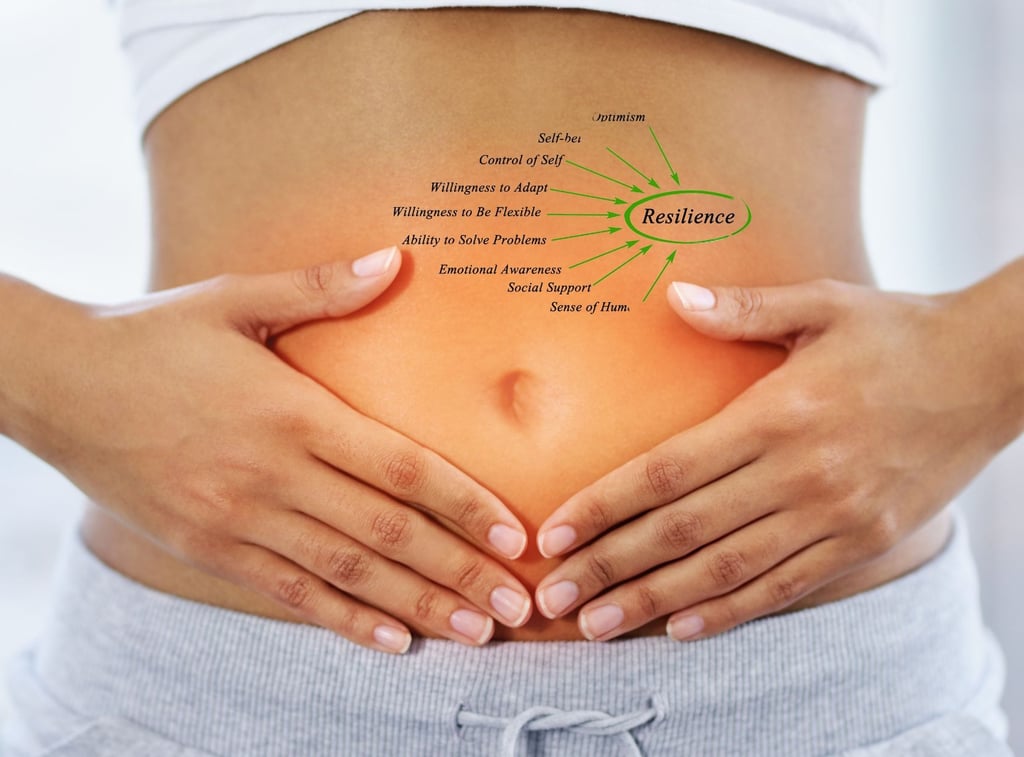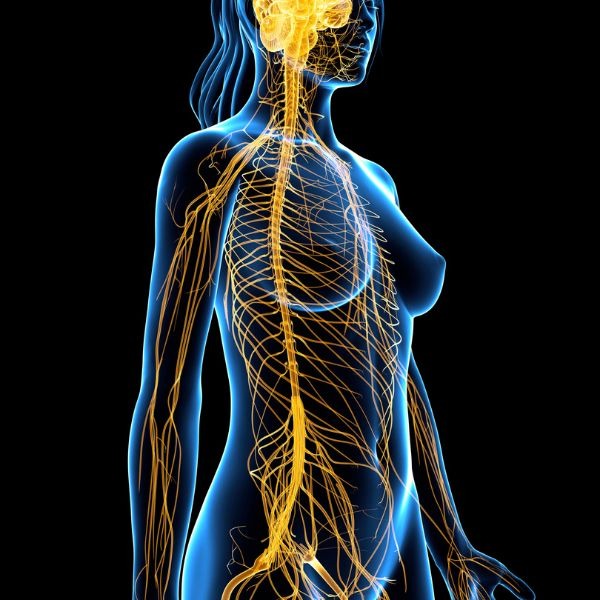The Hidden Connection Between Gut Health and Emotional Resilience Skills
Explore the link between gut health and emotional resilience skills. Understand how a healthy gut impacts mood and stress management.
HEALTH & WELLNESS
Shari Smith
4 min read
As an Amazon affiliate, we earn commissions at no extra cost to you if you click our links and make a purchase.


They say you are what you eat, but did you know what you eat could shape how you handle stress?
Emerging research shows a fascinating link between your gut health and emotional resilience—the ability to bounce back from adversity.
And for women seeking holistic health solutions, this connection might hold the missing piece to maintaining balance in life.
Let’s explore why the state of your gut is more than just about digestion; it’s central to your emotional well-being too.
Understanding the Gut-Brain Connection
Your gut and brain maintain an ongoing dialogue, constantly sharing vital information.
This communication network, called the gut-brain axis, impacts everything from mood to your ability to cope with challenges.
At the heart of this system lie two important players: the vagus nerve and neurotransmitters.


The Gut-Brain Superhighway: The Vagus Nerve
Picture the vagus nerve as an information superhighway. It runs from your brainstem to your abdomen, carrying signals that affect both physical and emotional responses.
This pathway explains why an upset stomach can be linked to anxiety, or why stress might lead to indigestion.
It’s a two-way street, and anything that disrupts this connection can throw off your mental equilibrium.
Polyvagal theory even suggests that activating the vagus nerve through deep breathing or relaxation techniques can calm your nervous system.
But the health of your gut plays a critical role in how effectively this nerve communicates.
Neurotransmitters and Mood Regulation
Did you know that 90% of your body’s serotonin—the “feel-good” chemical—is produced in your gut?
Beneficial bacteria in your microbiome help generate neurotransmitters like serotonin and dopamine, which regulate mood.
So if your gut health is off, your brain may not be getting the chemicals it needs to stay emotionally balanced.
This explains why gut issues are often associated with conditions like anxiety and depression.
How Gut Health Shapes Emotional Resilience
When your gut is healthy, it does more than keep you regular.
Your gut microbiome—the community of trillions of bacteria living in your digestive tract—plays an active role in stress responses, decision-making, and emotional stability.
Let’s break down how this works.



How Your Gut Health Affects Stress & Anxiety
Watch Video...
The Impact of Inflammation on Emotional Health
Inflammation in the gut doesn’t just irritate your digestive system—it can directly impact your mood.
Studies reveal that individuals with healthier gut microbiomes exhibit lower inflammation levels and tend to score higher on measures of resilience.
Why? Because inflammation triggers the production of harmful chemicals that affect brain regions tied to emotional regulation.
A balanced gut can produce anti-inflammatory metabolites like short-chain fatty acids (SCFAs), helping your brain stay sharp and calm under pressure.
Gut Microbiota and Stress Reduction
Certain strains of gut bacteria are like mini stress warriors. For example, species like Lactobacillus and Bifidobacterium have been shown to lower cortisol levels—the stress hormone.
When these helpful microbes thrive, they create an internal environment that allows you to breathe easier, literally and figuratively.
Over time, this microbial balance fosters a steadier emotional baseline, making it easier for you to handle life’s curveballs.
Practical Steps to Boost Gut Health for Emotional Balance
Improving your gut health doesn’t have to be complicated.
A few simple changes to your diet and lifestyle can create a ripple effect that enhances both your physical and emotional well-being.
Here’s how you can start:


Adopt a Diverse Plant-Rich Diet
Think of your gut microbiome as a garden—it thrives on variety. Eating a colorful array of fruits, vegetables, and legumes feeds the beneficial bacteria in your gut.
Foods rich in prebiotic fibers, such as asparagus, garlic, and bananas, are especially helpful because they act as fuel for these microbes.
Include Fermented and Fiber-Rich Foods
Fermented foods like kimchi, yogurt, and kefir introduce probiotics, or live beneficial bacteria, directly into your digestive system.
Pair these with fiber-rich options like oats, chia seeds, or lentils, which help maintain a healthy gut lining. Together, they create a powerhouse combination that fortifies your gut and your mood.
Avoid Gut Disruptors
The modern diet is often filled with gut-damaging culprits.
Artificial sweeteners, overly processed foods, and excessive alcohol can harm your gut bacteria, leading to imbalances that affect your emotional resilience.
Cutting out these disruptors gives your gut the chance to repair itself and function more effectively.
Emerging Trends in Gut Health and Emotional Resilience
Scientific advances are shining a light on groundbreaking ways to enhance emotional resilience, all rooted in gut health.
These emerging trends could change how we approach mental wellness.


The Role of Postbiotics
Postbiotics are bioactive compounds produced when gut bacteria break down certain nutrients.
More research is uncovering how these compounds can influence decision-making and emotional regulation, potentially offering a new frontier for improving mental health.
Therapeutic Interventions on the Horizon
Scientists are exploring innovative therapies, including specialized probiotics, prebiotic fiber supplements, and even fecal microbiota transplants.
These strategies aim to directly modulate the gut-brain axis to improve mood, reduce inflammation, and build emotional resilience.
Conclusion
The connection between gut health and emotional resilience isn’t just an intriguing theory—it’s a paradigm shift in how we understand mental wellness.
By prioritizing gut health through simple changes, you can pave the way for a happier, more balanced life.
So next time you’re considering how to manage stress, don’t just think about your brain—turn to your gut for guidance.
Start small, experiment with nourishing changes, and watch as your emotional resilience strengthens over time.
Your gut has more to say than you might think—are you ready to listen?




